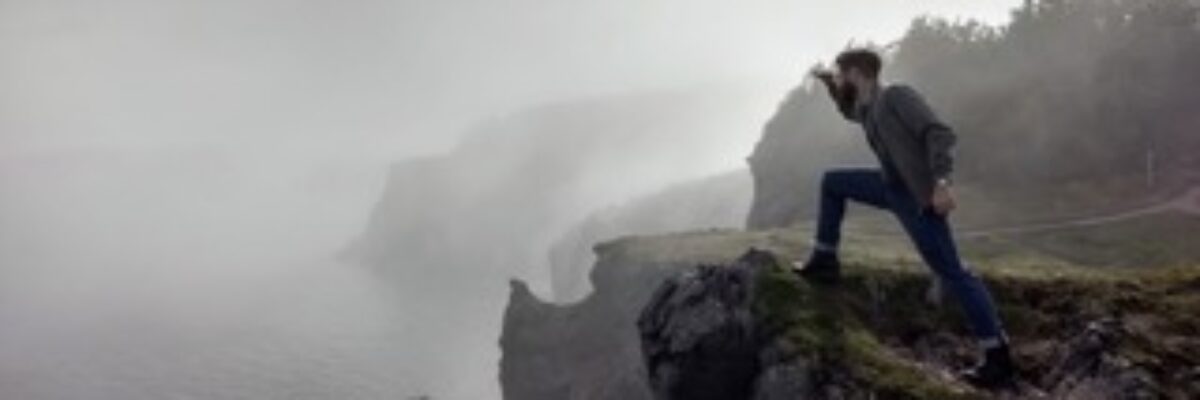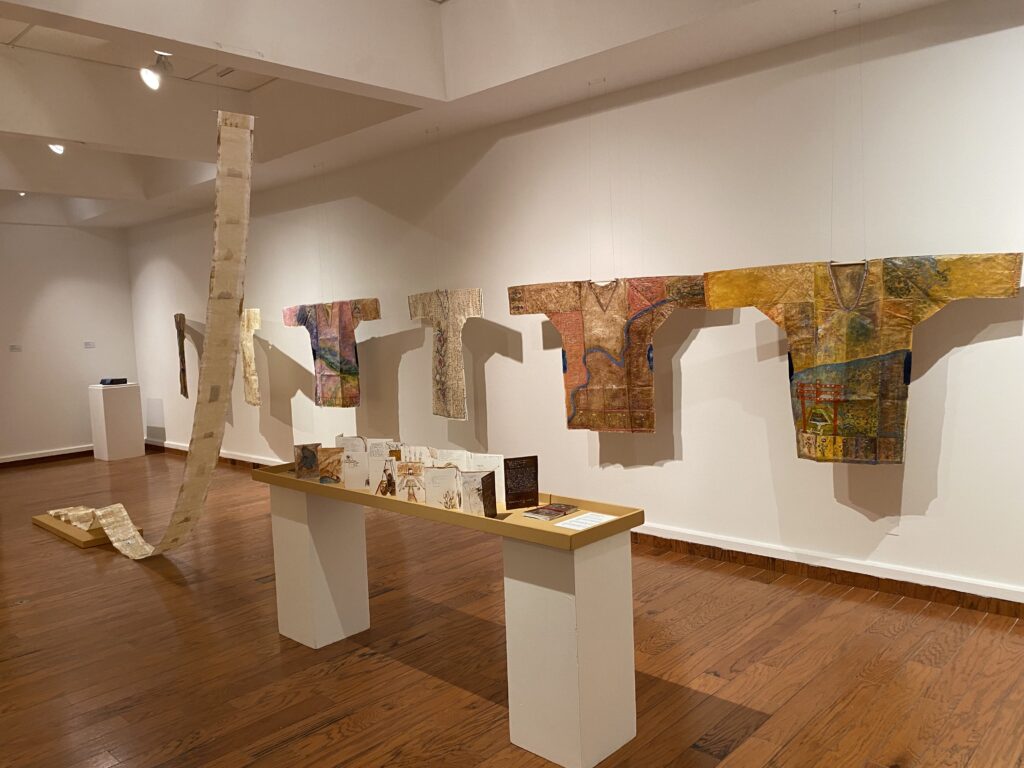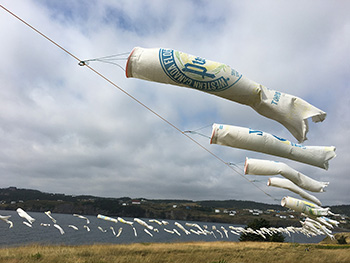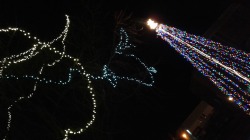Matthew Rooney and Seagulls
April 2021
Can you tell us a little about yourself?
Sure. I am a poet, short story author, and occasionally a visual artist. Most of my life I’ve lived in Halifax, Nova Scotia. I held various jobs during my early adulthood, and they sent me all across Atlantic Canada. At the age of 25 I enrolled at Dalhousie University with the hopes of getting a degree in Philosophy, but soon switched my major to English. Last year, I received an MA in English from Dalhousie.
I currently live in St John’s and work remotely as a teaching assistant and writing tutor. For the last two months, however, I have been living in North West River.
Did you write poetry as a child?
I didn’t, actually. I wrote the occasional poem or short story for creative writing assignments in my English classes, but I never really applied myself to them. Even in high school, I would only read the synopsis of assigned texts. I was a really bad student and would often skip class to play chess in the cafeteria.
My first experiments with poetry came in the form of song lyrics. In my teens I wanted to be a musician, and would occasionally try my hand at writing lyrics. Thankfully, none of these attempts survived.
Poetry and literature were relatively late additions to my life. There were very few books in my childhood home(s), and most of them were children’s books. Nobody in my family ever read for pleasure. It never felt like there was time to. I didn’t start reading fiction or poetry until I was 21 and had moved away from home. I’ve been hooked ever since.
What can a poem do that other art forms can’t do?
Poetry is almost a non-newtonian substance. On the one hand, there is no defined form that poetry takes, and with the right tools, it can be moulded into any shape. On the other hand, the form of a poem is paramount to understanding it, and formal restrictions themselves are very productive.
Poetry has an intensity and refinement that is rarely seen in prose. It’s language concentrate. Words are allowed – and even encouraged – to demonstrate their wealth of meaning in a poem. In prose, if a word can be interpreted in multiple different ways, it can lead to misunderstandings. In a good poem, the same multiplicity of interpretations is coherent. All of the meanings work together to paint a complete, nuanced whole – nothing is out of place.
The most compelling thing about poetry, though, is the way it guides the reader’s focus. Good poems are a meditative experience. They allow one to breathe and to concentrate in a way that is becoming difficult in a highly connected world.
What poets do you find inspiring and like to read? What artists, not necessarily poets, influence you? What do you find sparks most of your poems (the natural world, personal memory … )?
Recently I have been reading a lot about Elizabeth Bishop and John Ashbery. Bishop has always been a favourite of mine because of the way she observes the natural world and because of how idiosyncratic her poetry is. There’s really no other poet that writes like her. It also helps that she grew up in Nova Scotia and wrote a lot about areas and landscapes that I recognize.
My poetry comes from a lot of different sources. When writing “Seagulls,” I was trying to learn Mandarin Chinese, and its form reflects syllabic Chinese poetry. The image of the poem comes from a trip to Skerwink Trail [in Trinity East] and the landscape I saw there. Generally, I don’t tend to write about personal experiences unless they are abstracted beyond recognition. Most of my early published poetry is either satirical or comical. I learned how to write poetry by writing things that were fun to write, and those things tended to comedic.
This isn’t really a question, but Souvankham Thammavongsa, who has won the Trillium as well as the Giller, personally selected “Seagulls” (published in NQ spring 2020, vol 112 no 4) for the Best Canadian Poetry anthology. That must feel kind of good.
Souvankham Thammavongsa is an astounding poet. Her Light is one of my favourite works of contemporary poetry. I’m still processing the fact that she thought highly enough of “Seagulls” to include it in Best Canadian Poetry. I may still be processing it until I see the anthology in print.
Best Canadian Poetry 2021 is forthcoming from Biblioasis.




